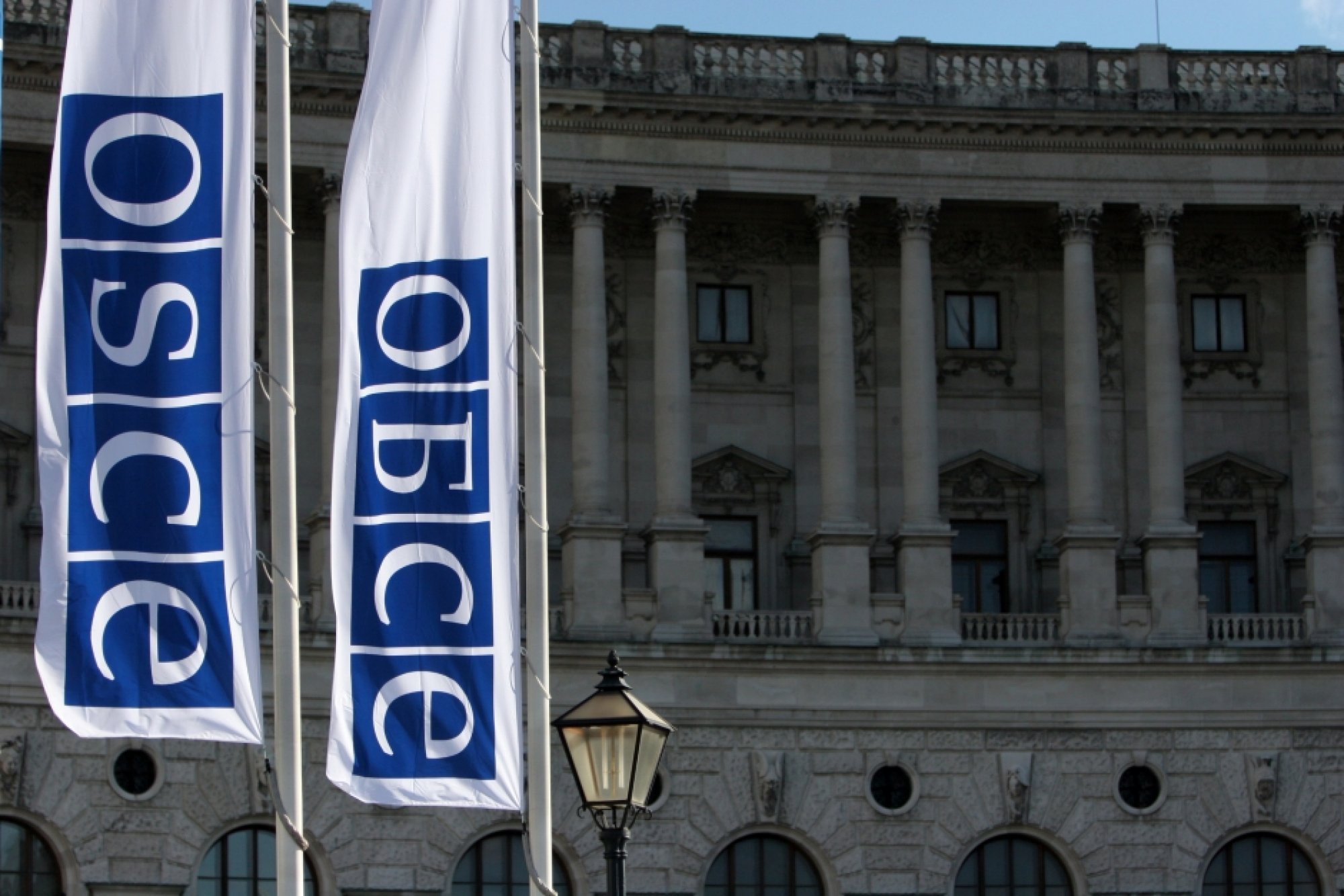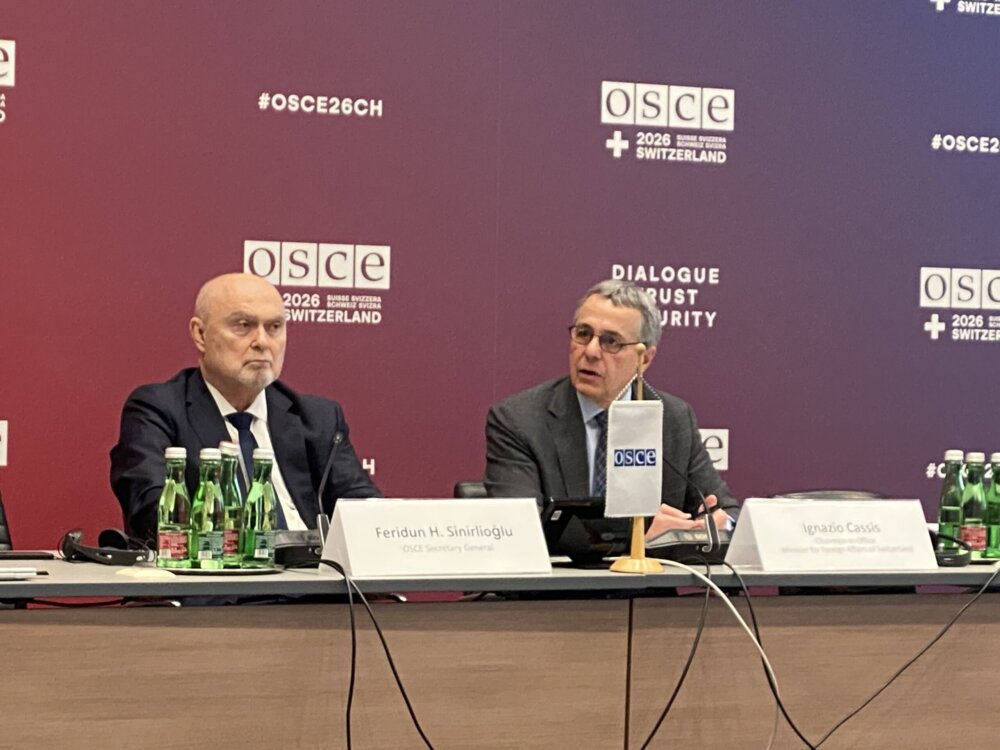OSCE/Mikhail Evstafiev

Alienating Russian speakers in Estonia could have destabilizing effects
Russia’s aggression against Ukraine has significantly impacted the geopolitical landscape in Europe and beyond. It has also affected the internal dynamics within countries situated at the frontline of Russian influence, particularly in the Baltic states and Moldova. The fear of becoming the next target of Russian aggression is strong in all these states and it is understandable that they all take steps to be better prepared against a possible Russian aggression.
This article focuses on the situation in Estonia, where authorities have recently taken various steps aimed at enhancing national security, which include measures to restrict rights of their Russian-speaking inhabitants who do not hold an Estonian passport. One may wonder whether some of these actions could have a paradoxical effect, potentially jeopardizing the internal stability of the country. We will concentrate on issues directly related to minority rights and will not discuss other issues, such as the removal of Russian monuments or the plan to establish a military base in Narva.
A few facts: Approximately 84 percent of Estonia’s total population of around 1.35 million are Estonian citizens (2021 census), according to Statistics Estonia. The rest includes citizens of other countries, stateless aliens, and a group with Russian and Ukrainian passports. The number of Russian-speaking inhabitants in the country, who use Russian as their mother tongue, is estimated to be around 29 percent (2021 census.) While Russian-speakers are dispersed throughout the country, most are concentrated in the northeast, close to the border with Russia. The border town of Narva is almost completely inhabited by Russian speakers, many of whom are stateless or have a Russian passport.
Given the current political climate, it is understandable that this situation poses a concern for the Estonian authorities, in particular after the Russian aggression against Ukraine. Several policy measures have been taken that significantly affect Russian-speakers, although one may raise questions whether all policy changes, implemented or being considered, are really effective or even legitimate. Here are a few examples.
The recent amendments to the Estonian Constitution, adopted by the Riigikogu on March 27, will restrict the right to vote in local elections to citizens of Estonia and other EU countries – similar to the situation in other EU countries. This means that the many Russian-speaking inhabitants who hold a Russian passport or an alien’s passport will lose their right to vote in municipal elections in Estonia.
This development looks like a step back in the history of this small Baltic state. Granting non-citizens the right to vote in local elections was an important step toward improving the integration of the many Russian-speakers permanently residing in Estonia. These policies were introduced by the Estonian authorities in the years after regaining independence on strong recommendations to that effect from the Council of Europe and the OSCE High Commissioner on National Minorities.
These policies were not only based on international standards concerning the rights of persons belonging to national minorities, but were also motivated by a conflict prevention perspective: By encouraging permanent residents without Estonian citizenship to participate more fully in public life, the hope was to manage inter-ethnic tensions more effectively.
A surprisingly critical Estonian President Alar Karis, when signing the constitutional amendments, cautioned that the “potentially far-reaching consequences should have been analyzed beforehand.” He concluded: “Defending internal peace cannot remain a mere slogan. We are at a point today where it is irresponsible not to consider how even seemingly just decisions affect society as a whole.”
While it is clear that the amendments to the constitution are primarily aimed at reducing political rights of the large Russian-speaking minority in the country, they also affect people with citizenships from other countries.
The amendments of the Estonian constitution did not come overnight. The government has been concerned for a long time about the considerable number of Russian speakers who permanently reside in the country without making efforts to acquire Estonian citizenship. Many have preferred to apply for Russian citizenship or remain ‘alien’, avoiding the process of acquiring Estonian citizenship, in particular also because of the requirements to learn the Estonian language and pass other tests on history and the constitution of the country. Such requirements for citizenship can be found in many countries, although they should be realistic, also for elderly people.
But the main aim of the Estonian authorities – to increase the number of Russian-speakers acquiring Estonian citizenship – is, of course, totally legitimate. However, removing voting rights from non-citizens raises questions about legitimacy, as this action contradicts the belief that granting such rights, albeit subject to a wide variety of conditions, has become standard practice in many countries, not just in Europe, but also elsewhere.
The EU and the Council of Europe (CoE) have established detailed regulations on these issues, although these are usually restricted to citizens of other EU or Council of Europe member states. So, both from an international law and from a conflict prevention perspective the Estonian constitutional amendments appear to be controversial.
These contentious constitutional amendments are not the only steps undertaken by the Estonian authorities since the Russian invasion of Ukraine. The government has altered the legislation on education, which results in the gradual phasing out of all Russian-language schools, a highly sensitive topic for the Russian-speaking community.
There is no doubt that with these measures the Estonians clearly violate the rights of national minorities to get education in and of their mother tongue as stipulated both in OSCE and Council of Europe documents, including the CoE Framework Convention on the Rights of National Minorities of 1994. Estonia has ratified the latter document together with 37 other CoE states. It is important to remember that such minority rights have been established not only to protect the minorities, but in particular also to maintain peace and stability within the society.
As another policy measure, the Estonian parliament adopted a law on April 9 that will sever ties between religious institutions in Estonia and foreign entities deemed a threat to national security — a move widely seen as targeting the Moscow-affiliated Orthodox Church. The law followed the refusal of the Estonian Orthodox Church to sever ties with the Russian Orthodox Church which strongly supports Putin’s war of aggression against Ukraine. While this law can be defended from a national security perspective, a number of the Russian-speaking inhabitants will definitely not be pleased about it.
On the whole, some of these policy measures could have adverse effects, especially when assessed from a conflict prevention perspective. Rather than promoting integration, these measures enhance tensions. One might question whether Tallinn genuinely desires this outcome, considering that Russian-speaking residents have made it clear over the years that they do not intend to leave a country they also consider their own. By alienating them the national security situation of the country may be negatively affected.
The first OSCE High Commissioner on National Minorities, Max van der Stoel, expressed similar concerns already several decades ago. In his letter of July 1, 1993, to the President of Estonia about the then controversial draft law on aliens Van der Stoel stated: “In my view, it is necessary not only to analyze the law on its purely legal merits, but also to consider its psychological effects on the Russian-speaking population of Estonia. Most of those belonging to this group have lived in your country for many years and have established their roots in Estonia. They prefer to continue to live in your country, and many of them have expressed their attachment to it by voting for its independence in the referendum. They were citizens of the former Soviet Union, living in Estonia. Now, under the new law, they would be considered to be aliens. This in itself inevitably causes emotions and concerns among them about what the future may bring, even to such an extent that it could lead to a destabilization of the country as a whole.”
These statements remain relevant today, despite being written more than three decades ago, and even though the threat from Russia has evolved significantly since then.
The paradoxical situation now is that the Estonian parliament adopted the constitutional changes because of national security considerations, while the unintended consequences of these changes could create instability.
Although it is understandable to empathize with the Estonian government’s policy measures regarding their Russian-speaking inhabitants, the authorities should try to avoid increasing tensions and providing Moscow with arguments that can be used against Tallinn in relation to defending the interests of Russian speakers – an excuse that Moscow has used time and again as a reason for poking its nose in other countries’ affairs. That is not in the interest of Estonia nor in the interest of the international community.
Given that both the amendments regarding voting rights and minority education are highly controversial, there seems to be ample grounds for a renewed involvement by the present OSCE High Commissioner on National Minorities, Christophe Kamp. Such third-party mediation may be helpful in finding a proper balance between national security and minority protection. Alienating the Russian-speaking minority in Estonia hardly serves the interests of either Estonia or the international community.
Dr. Arie Bloed is a senior security and justice expert. He worked for the OSCE High Commissioner on National Minorities in the 1990s, including in Estonia and Latvia.
Comments
One response to “Alienating Russian speakers in Estonia could have destabilizing effects”
Leave a Reply
* Your email address will not be published



How long should any nation condone the actions of a large minority of its population who refuse to assimilate, especially when those minorities were brought in by an illegal foreign occupier? The Baltic states have been patient. Ethnic Russians have a responsibility in this situation, too.